My Fitbit's sleep tracking features actually changed my sleep for the better
Do sleep trackers really help? We take a look at their effectiveness
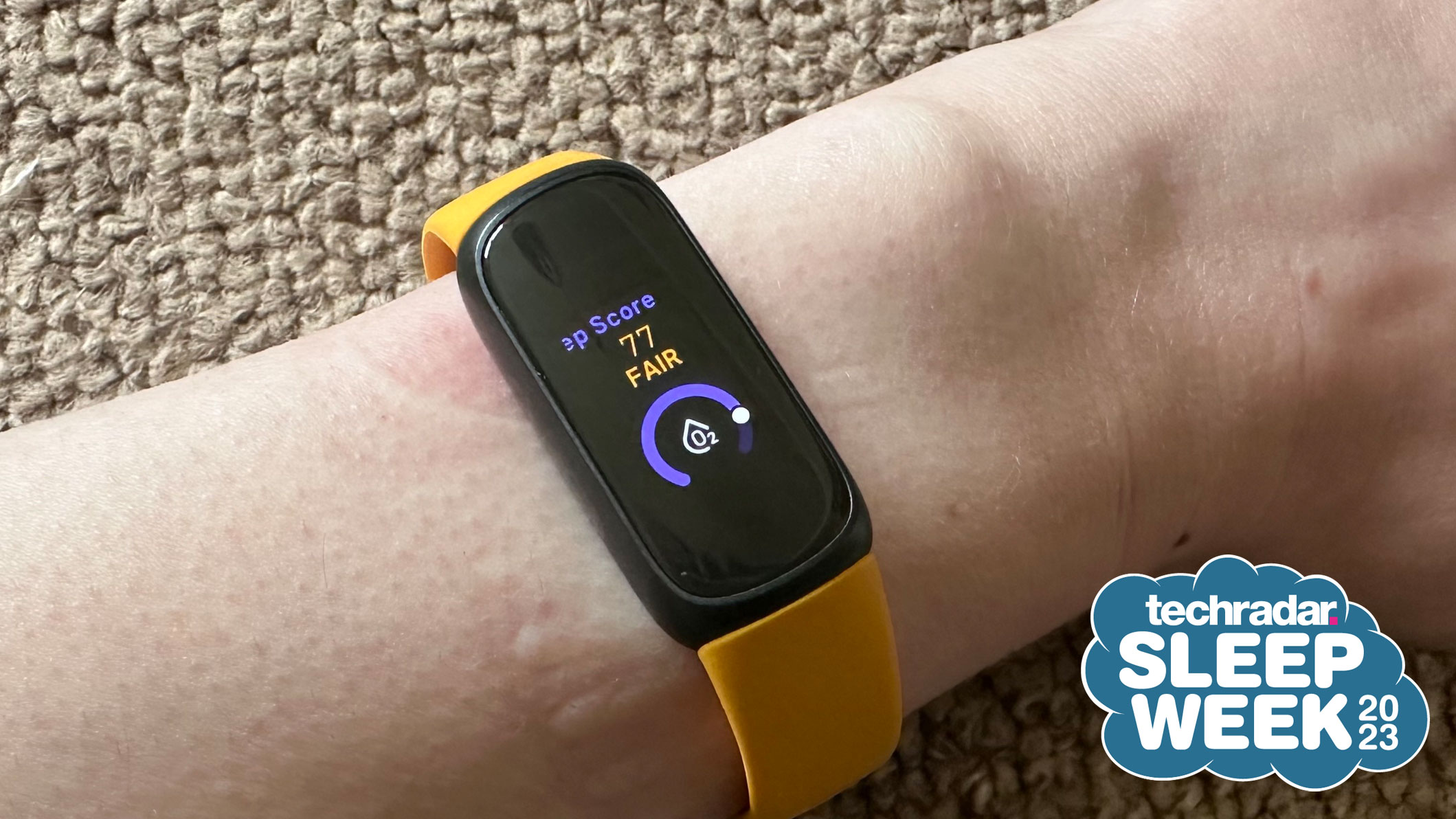
Sign up for breaking news, reviews, opinion, top tech deals, and more.
You are now subscribed
Your newsletter sign-up was successful
It's generally considered that we sleep for around a third of our lives. Some days, it feels like a lot less, of course, which is unfortunate when you bear in mind the importance of sleep. It helps us all feel rejuvenated for the next day, but it also affects our moods, appetite, our productivity levels, and even our health.
There's no device out there yet that can actually make us go to sleep (although having the best mattress will make a big difference), but one of the best sleep trackers can at least help. Fitbit makes some of the most popular sleep and fitness trackers, with the likes of the Fitbit Inspire 3 and the Fitbit Charge 5 being hardly noticeable on your wrist while you snooze.
With so many different stats and figures to track, knowledge is power, right? Yes and no. To find out just how well a Fitbit can help improve your night's sleep, we took it and some other sleep devices for a whirl to see how effective and accurate they genuinely appear to be.
So many stats
Fitbit does a pretty good job of translating its plethora of stats and information in a way that makes sense to glance at. Depending on your device, you can often check out the very basics, such as how long you slept and the quality of sleep from the Fitbit screen. However, the meat comes from the Fitbit app and its premium subscription service – Fitbit Premium – which costs $9.99/£7.99 per month or $79.99/£80 per year. Crucially, you get six months free when buying a new Fitbit, so you can understand the different figures it provides.
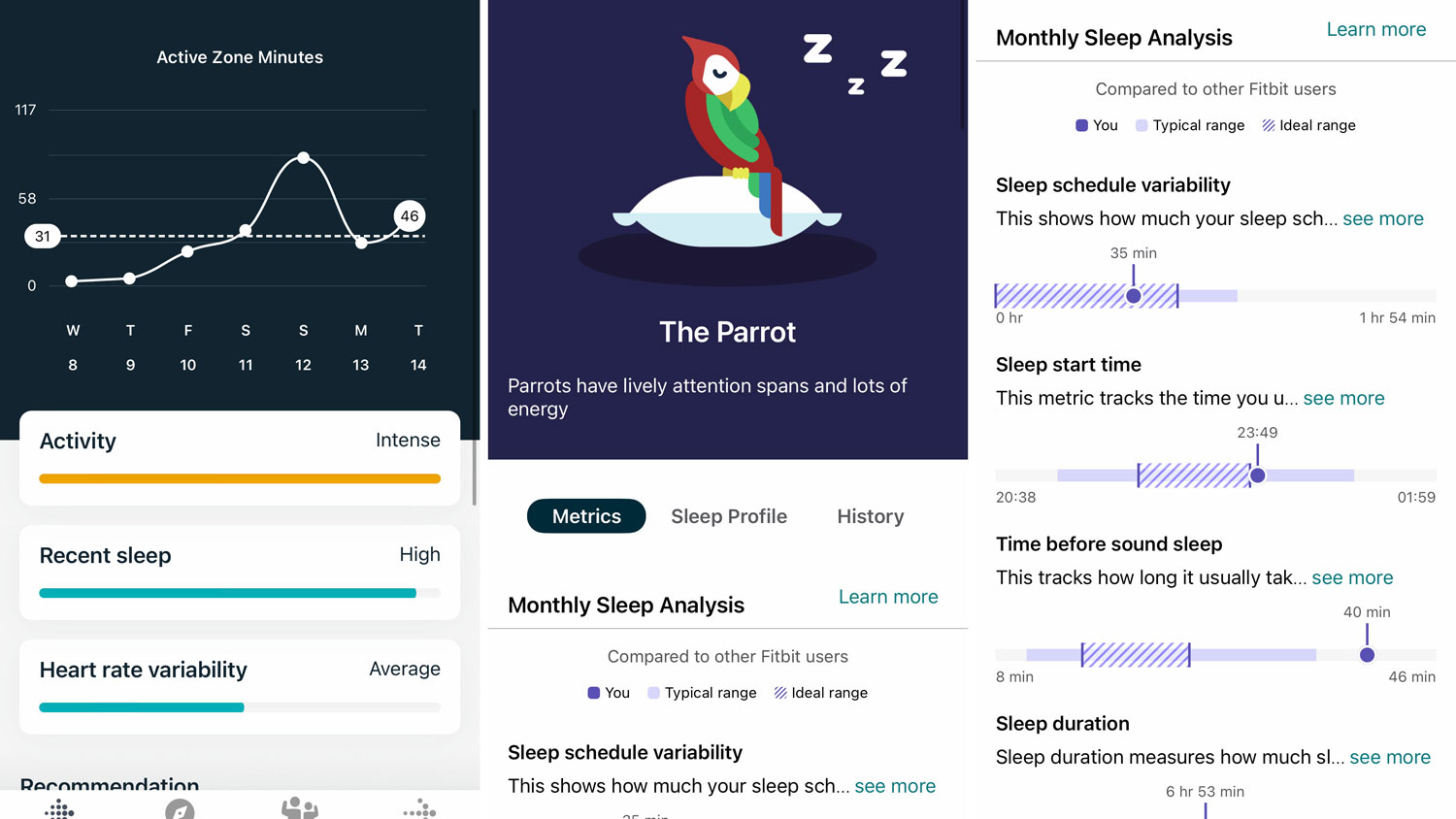
Wear a Fitbit for the night and it'll give you an overview of how long you slept, how much of that was deep sleep, and how much was restorative. A charming little graph demonstrates the ebbs and flows of your snooze, invariably making you realise you've been restless or woken up too often by the kids or your partner's snoring.
Stick with wearing the Fitbit tracker for at least 14 days and you'll gain a monthly sleep profile. Fitbit could have chosen a soulless-looking description of your sleep type, but instead, it uses cute animals. For instance, mine has been a parrot during a lively period of my life, indicating that I was reasonably consistent with my sleep patterns.
Life changes, though, so you can be assigned a different animal each month as a quick overview of your sleeping habits. Another month of mine produced a hedgehog – a more nocturnal animal with my bedtime later and the likelihood of being away throughout the night much higher. Annoyingly, there's no way to directly compare two months, but you can still see what it's getting at.
Sign up for breaking news, reviews, opinion, top tech deals, and more.
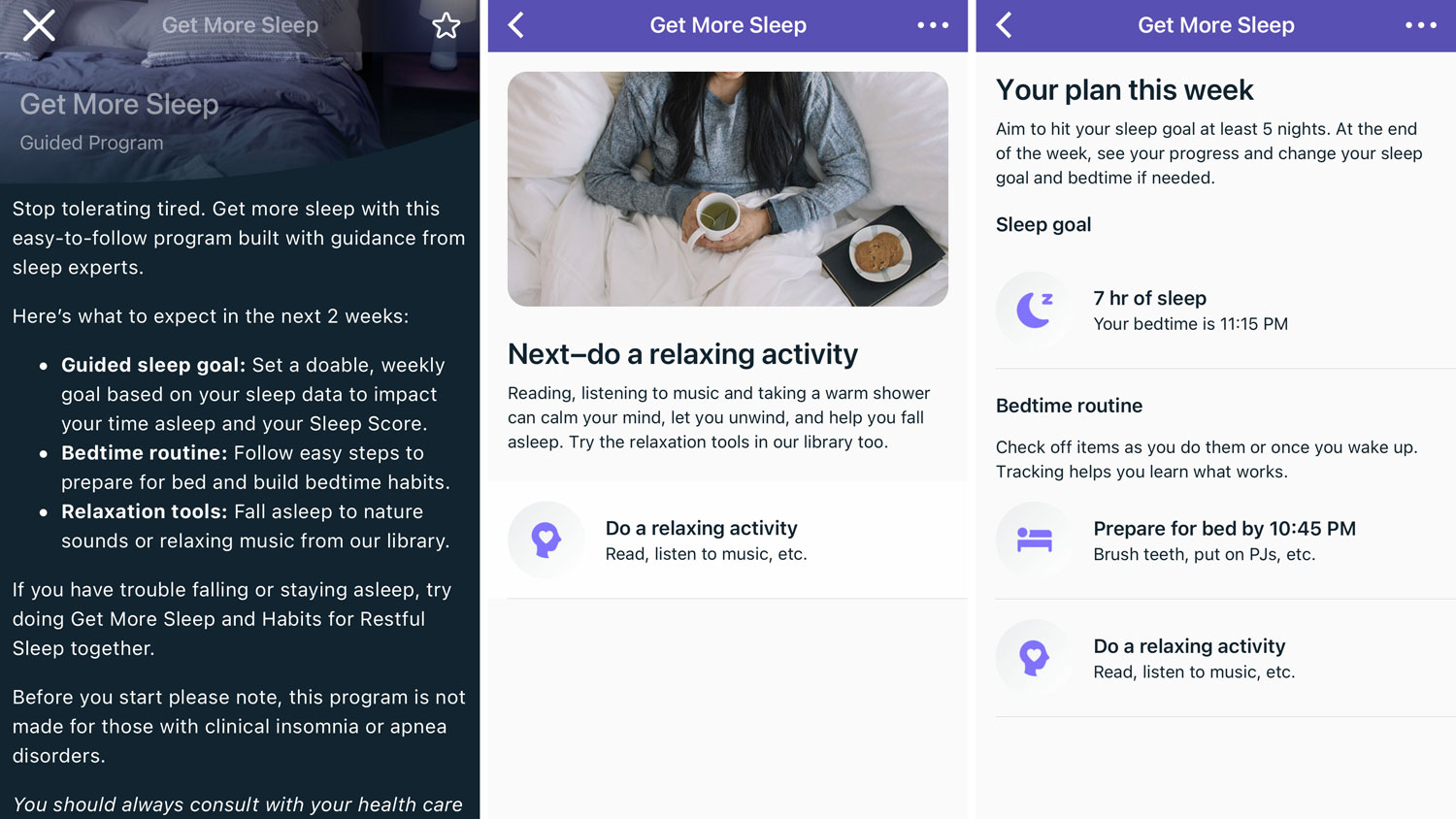
Samsung, Oura, and Garmin all have their own similar methods, but none of them are as cute or as easy to understand at a glance. Instead, they focus on extensive stats, which Fitbit offers underneath the cute imagery. Fitbit's been pretty good over the years at simplifying potentially complex data, right down to its readiness score each day which lets you know if you should be pushing yourself exercise-wise or cutting back for the day instead. But does it actually work?
How I learned far too much about my sleep
As someone gradually working on my fitness levels after being diagnosed with a chronic illness, I'm a complete stats nerd regarding my pace, heart rate variability, calories burned, and steps taken. Fitbit has done an excellent job of translating that obsession to sleep tracking too.
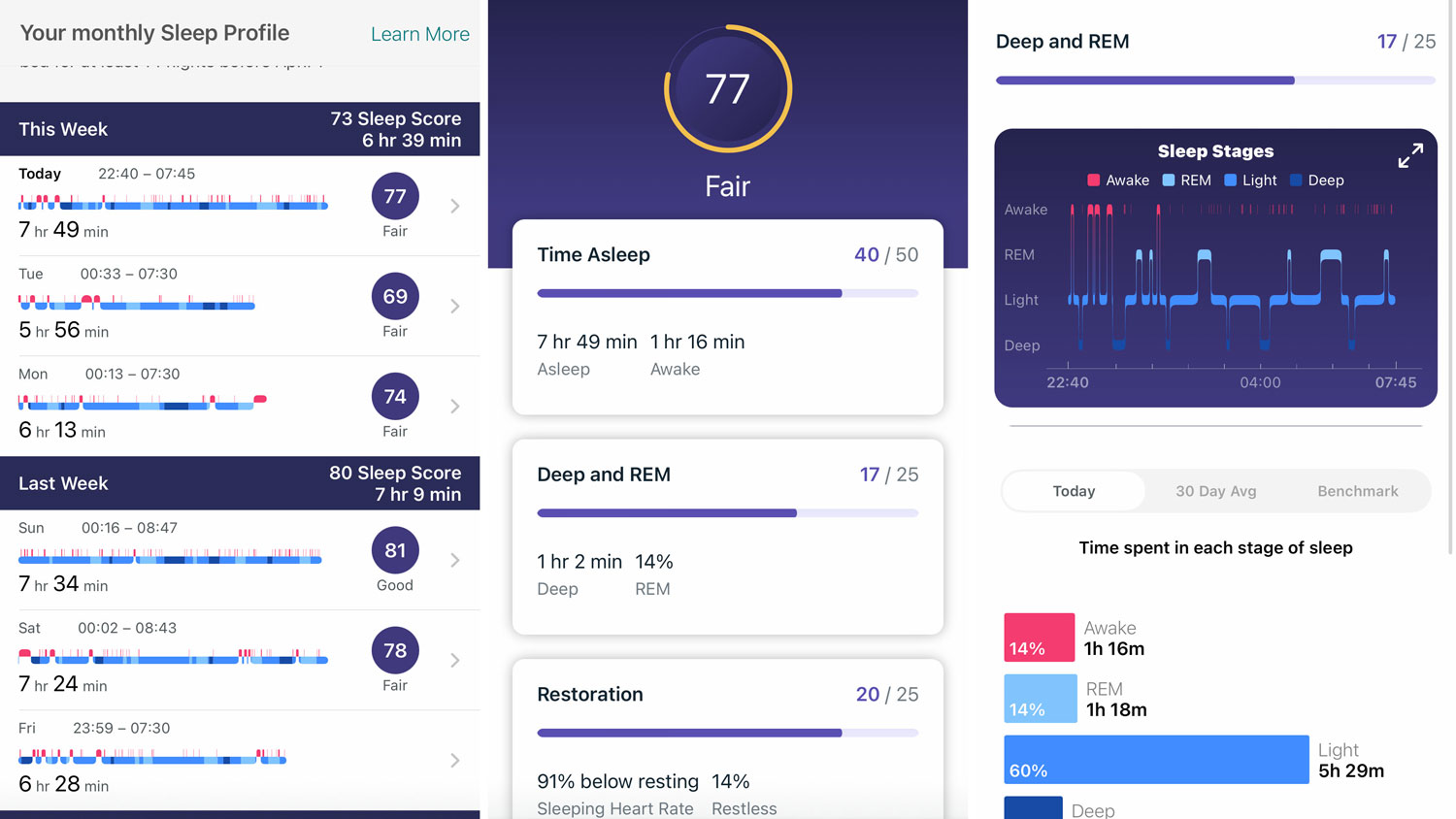
I had valuable data even before I'd used my Fitbit Inspire 3 enough times to conjure up the latest sleep profile for the month. Being able to spot how much deep/REM sleep I'd achieved was a good indicator of how or why I felt tired that day. Similarly, the readiness score offers vital insight with – at the time of writing – a mere 1 out of 100 reminding me that I shouldn't have really done that HIIT session yesterday on top of a brisk walk and a busy day of work. It ties into how well you sleep so your readiness score will suffer if you sleep poorly. Think of it as like your Mum looking out for you.
The Fitbit app explains why you need more sleep and offers advice on achieving that. Guided Programs are recommended, with my favorite being simply titled Get More Sleep. Answer a few questions and you're given recommendations on how much sleep you need, when you should go to sleep, and – more importantly – recommending when you should start preparing for bed such as brushing your teeth and putting your pajamas on. You can also listen to relaxing sounds and meditations to calm your brain beforehand. Much of this is common sense advice, but I know I need the reminders amongst a busy lifestyle and a brain that's not always on my side.
Results and progress
For the most part, my Fitbit Inspire 3 helped. It could be a placebo, but when I followed its advice, my sleep score improved, suggesting I was more well-rested than before I tried listening to meditations or even simply sticking to the same bedtime routine.
That's assuming the Fitbit is accurate, of course. Because I'm so intrigued by how sleep can affect my moods and energy levels, I use the Fitbit Inspire 3 alongside an Apple Watch Series 6 and a Withings Sleep Analyzer. Interestingly, they vary in terms of what they spot. While my Apple Watch Series 6 feels more accurate for noticing changing heart rates over my many nights of slumber, it overreports my sleep. One night, the Fitbit Inspire 3 reckoned I got just under six hours of sleep which, given how tired I was the following morning, felt about right. The Apple Watch was cheerily reporting a little under eight hours. I'm guessing I stayed too still for some of the periods of time I couldn't sleep. If I'd wandered around my house, it would have noticed me awake. The Fitbit Inspire 3 was more sensitive at appreciating I wasn't asleep.
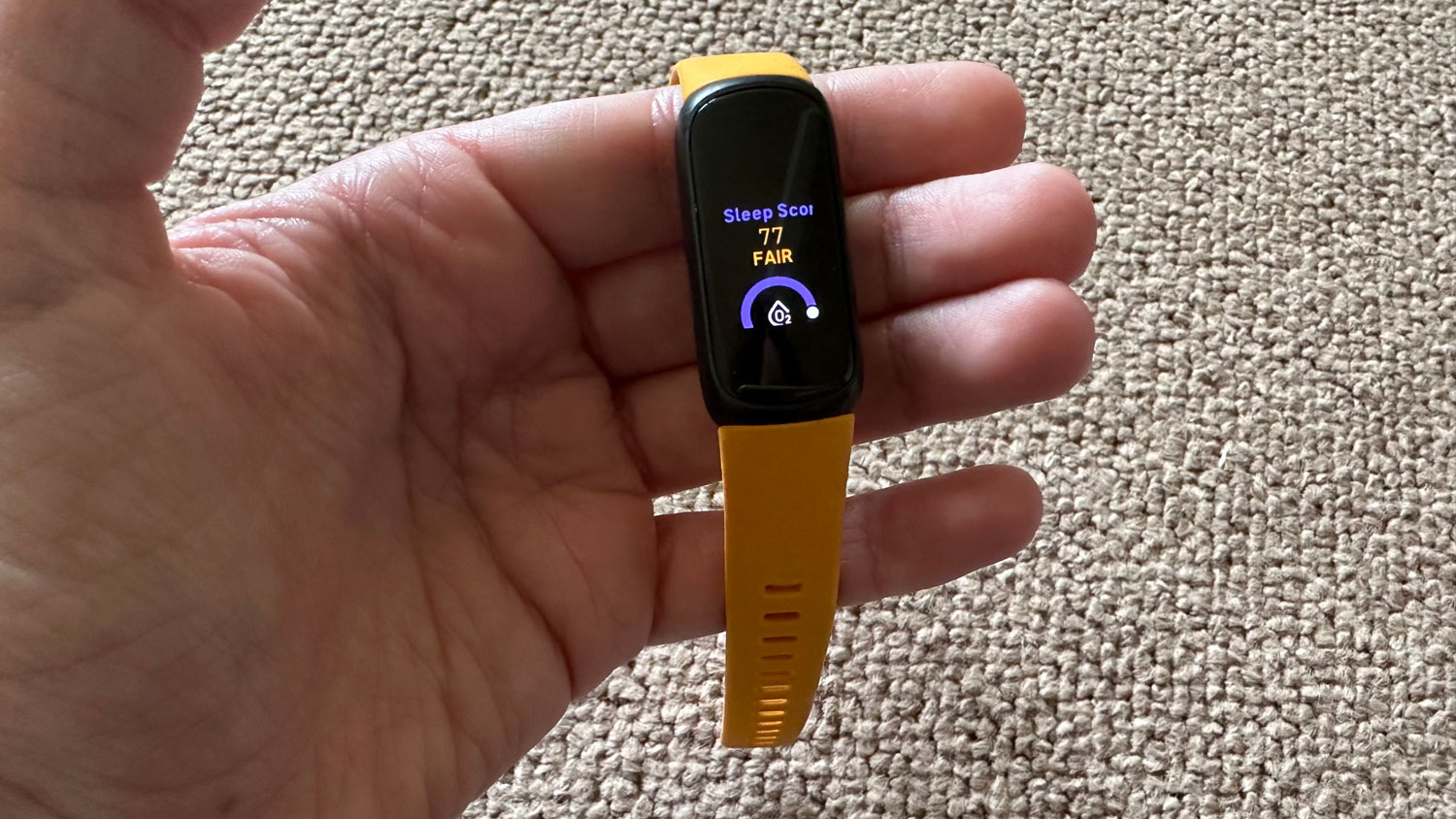
I went into the experiment thinking that my Withings Sleep Analyzer would rule the roost for sleep tracking. After all, it's a device that is placed under my mattress, so it can't be confused by my arms flailing in my sleep like a wearable could be. Having used older Fitbits years ago, Withings always came through for me, being far more accurate.
Something's changed. The Fitbit Inspire 3 was there pointing out how I'd slept poorly, while the Sleep Analyzer was still adamant that I'd slept about as well as the Apple Watch believed I had. Suddenly, I felt a lot more fond of my little unassuming (and cheaper) Fitbit Inspire 3, even if the Withings Sleep Analyzer saves me from needing to wear something as I sleep.
Does Fitbit's sleep tracking really help?
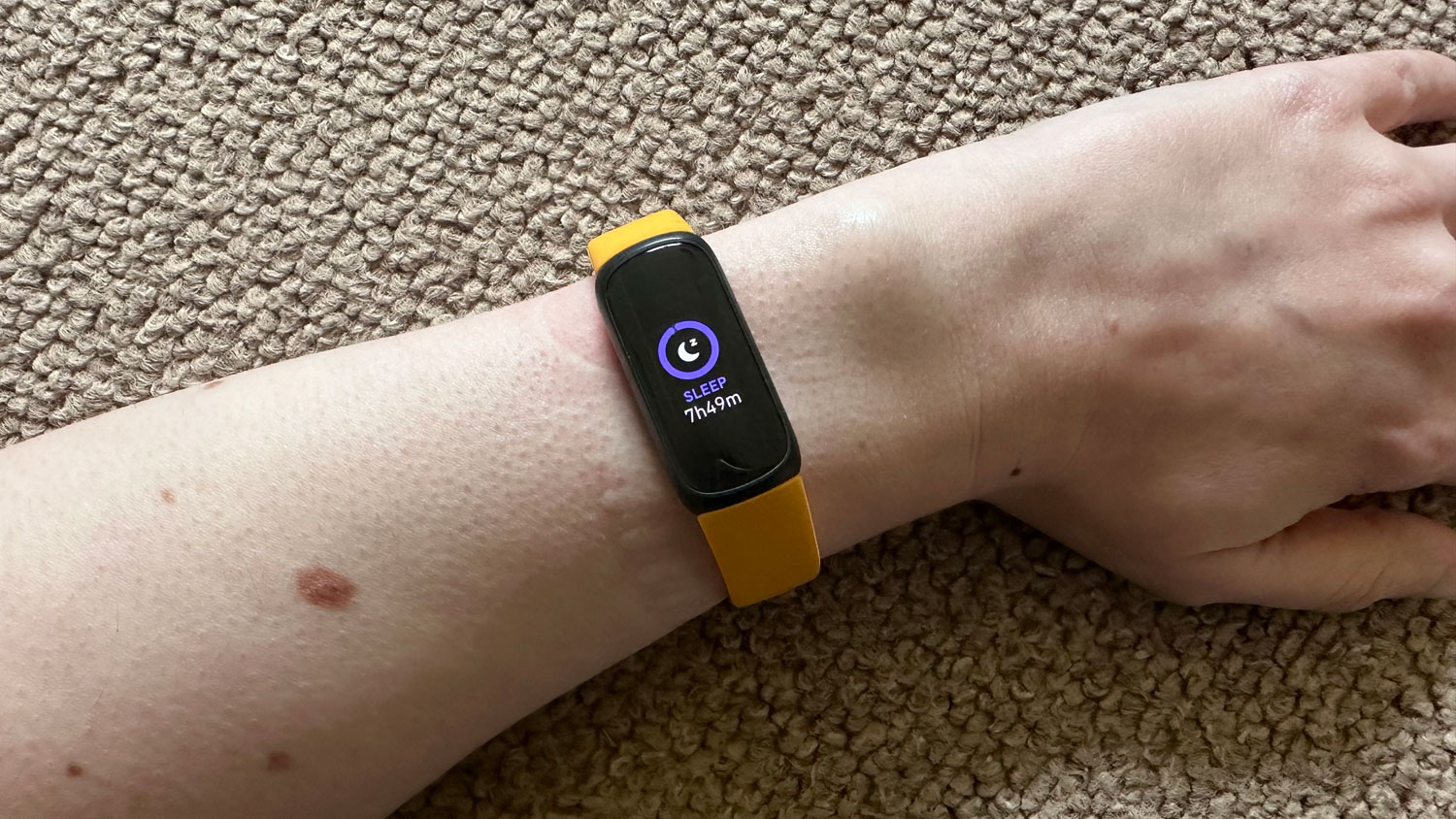
I have a sneaky feeling that no product that tracks your sleep will ever beat how you feel. It's always best to take a moment upon rising to take stock and think about how well-rested you actually are. However, once you've figured the basics out, Fitbit is there to fill in the gaps.
There's that common sense approach here, but how often do we all need to be reminded to simply drink more water or eat a little healthier occasionally? Fitbit's guided programs and sleep profiles do that, but in a friendly way that almost gamifies the sleep process. It's an appealing concept. It makes you want to treat sleep like a competition with yourself. A little green star next to a figure to tell you that you've done well is just as exciting as when you were a kid completing a chores chart.
We could all do with prioritizing sleep over work and even play sometimes. Fitbit and its app may yet encourage you to notice some significant trends to get the best out of your day. It certainly seems to have done that for me.
This article is part of TechRadar's Sleep Week 2023 celebration (running until Saturday 18 March), a week-long look at all things slumber. We'll be bringing you proven techniques and tips to help you sleep better, and have rounded-up all the top-rated tech to transform your sleep.

Jennifer is a roving tech freelancer with over 10 years experience. Having graduated from Swansea University with a degree in Media and Communication Studies, and later with a diploma from Staffordshire University with a post graduate diploma in Computer Games Design, she's written for a huge number of publications, including T3, FitandWell, Top Ten Reviews, Eurogamer, NME and many more.
Her main areas of interest are all things B2B, smart technology, wearables, speakers, headphones, and anything gaming related, and you'll find her writing everything from product reviews to buying guides and hunting down the latest coupon codes to save you money. In her spare time, she enjoys the cinema, walking, and attempting to train her pet guinea pigs. She is yet to succeed.